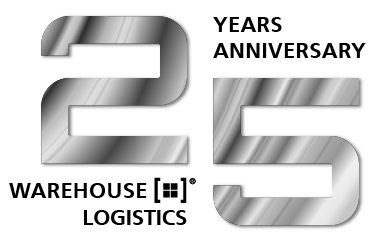Actualités
Afficher l'aperçu des nouvelles
HOW MACHINES LEARN – MACHINE LEARNING IN INTRALOGISTICS
09.09.2020
Machine learning for objects and on the material flow level • Rovolution, the multiple award-winning picking robot, is based on insights from the field of machine learning • Predict seasonal fluctuations and changes in ordering behavior with precision
Artificial intelligence (AI) and machine learning are finding their way into many industrial sectors, among them is the material handling industry. TGW, for example, has developed Rovolution, the self-learning order picking robot. What benefits does the award-winning system offer? How can the fulfillment center of tomorrow be optimized using artificial intelligence? To find out the answers to these questions, we talked to Dr Maximilian Beinhofer, Head of Cognitive Systems Development at TGW.
Mr Beinhofer, what exactly does machine learning mean?
Maximilian Beinhofer: Machine learning is a term that can be applied to about 95 percent of all applications of artificial intelligence. Machine learning is a general term for generating knowledge from experience. It is based on algorithms that do not follow a fixed, programmed rule, but for which only the basic structure is predefined. The algorithms are trained to recognize patterns and make predictions.
Machine learning, therefore, makes use of empirical values. The system takes historical data and uses it to learn to process new, unfamiliar data. The algorithm is refined continually. It continues learning and can adapt to new situations independently and dynamically. This holds the key to increased efficiency in material handling – during automatic order picking, for example.
What benefits does the technology offer?
Artificial intelligence and its subdomains are driving growth in many industries. Many places in the supply chain hold latent information with a great deal of potential for making processes more efficient. This pertains to the performance of an entire system as well as individual elements. Using machine learning enables companies to benefit from more efficient workflows. For example, orders can be picked and sent to customers without errors and with maximum speed.
In which areas does TGW work with artificial intelligence?
Artificial intelligence has a very wide variety of applications. We want to make targeted use of machine learning where companies and their customers can derive the greatest benefit from it. This is the case wherever the task is identifying patterns in large databases and optimizing processes and workflows. Therefore, at TGW, we consider machine learning from three perspectives: the object level, the material flow level and the machine level.
First,machine learning for objects: This might include, for example, articles that are to be picked by Rovolution, our order-picking robot, or load carriers such as cartons. The core question here is this: Which properties does this specific object have – and what is the best way to pick it?
The second perspective ismachine learning on the material flow level. The core question here: How can I control the system so that there are no bottlenecks and all workstations are evenly occupied?
The third perspective ismachine learning for machines: Here, the task is to analyse and understand the condition of individual components – as part of condition monitoring or predictive maintenance, for example. This makes it possible to reduce downtime by scheduling dates and times for maintenance at an early stage.
In which areas does TGW use machine learning techniques?
Rovolution, our self-learning order picking robot, is based on machine learning insights. It reacts completely on its own to unexpected events such as an article falling down during the gripping operation, without any human intervention whatsoever. This ensures interruption-free work around the clock. A highly complex algorithm looks at data to develop an understanding of the scenario, making it possible to assess and classify the condition. On this basis, the Rovolution robot can make autonomous decisions about how to handle an article being picked.
What are you working on currently?
We're currently busy developing prediction models that enable precise adaptation of a system to seasonal fluctuations or changes in customer order behavior. The models recognize patterns that are not immediately apparent to a human brain. This makes the process of drawing conclusions and making decisions in everyday business much faster. TGW also invests in research projects and collaborates closely with international universities.
Is machine learning a supplement to automation?
Machine learning provides an answer to challenges which cannot be overcome using traditional automation technology alone. TGW brings the necessary experience and expertise to the table. We have over 50 years of automation experience and can link our knowledge about software and digitalisation with our mechatronics expertise – to the benefit of our customers.
Mr Beinhofer, thanks for the interview!
